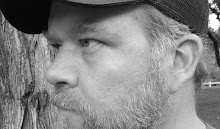
Picture this: an Olympic gymnast walks out to the bench to warm up. She bends halfway at the waste and grunts, There, finished! How happy would the coach of a world class athlete be with a warm up like that? Not very! Yet as actors we give our warm up that kind of halfhearted, this is a waist of my time, kind of attitude.
A good warmup can make a mediocre performance good and a good performance great! How? Check this out for a
complete response to that. For this article suffice it to say, it just can! Here are some warmups I use with my students all the time.
Begin with a little stretching, anything you like you learned this in PE back in grade school, just limber up a little.
Now, find a spot on the floor and lay flat on your back. Starting at the tips of your toes relax your body focusing on each individual joint as you move up to the ankles, the calf muscles,the knees, the thighs. Think of being able to sweep away all of the tension, all of the stress and allow each muscle group to completely relax, no flexing no motion.
Work up the body all the way to the shoulders then sweep your way down each arm, up the neck, up and over the scalp ending with the facial muscles, especially the jaw and the throat where the voice is produced.
Once you have accomplished the relaxation of the body move internal to the mind. While staying physically relaxed, I want you to imagine yourself standing in the center of a large room. Surrounding you are all of the things you could be thinking instead of focusing on your performance, arguments with parents, dog needs to be fed, new shoes, math test, Christmas, whatever! Let each of these things call out to you! Now imagine you have a box with a timed lock on it. Open that box and let it pull all of your distractions in, close the box and set the timer for after your rehearsal or performance.
Now its time to focus. Imagine a power cord coming from your belly button, plug it in to an imaginary plug in and....Just try it! This is nothing like the face exercise, trust me! (this is the point at which all bu the most serious of my students usually protest but I promise there is a payoff if you give it an honest shot) Plug it in and allow your brain to reboot. Imagine you have cleared the decks and you are now focusing all of your mental energies on this one project, playing your part.
Okay now create for yourself an imaginary neon sign with the title of your show, class, or performance piece in bright letters. Plug yourself into it and imagine it lighting up as you focus all of your creative talent into this one project just for little while. (I am not suggesting anything religious here, I make it clear to my students that the one thing that should never be considered a distraction is your conscience, never give up your ability to make moral choices for any reason)
Some of you may think that some of those "distractions" are a darn sight more important than acting, maybe they are, bu the subconscious is a very powerful thing and it will continue working on any problems you might have. In fact you may find that after coming back to these things after taking a break from them they will present their own solutions.
Once you have finished the routine above sit up and stand slowly to your feet, time to energize! Lets start with the voice. Starting deep make a siren sound rising in pitch all the way to the top of your range and back down, repeat! Now move on to the facial exercise found here. Now try these diction and projection exercises.
say this aloud
Articulatory agility
is a marvelous ability,
Manipulating with dexterity
The tongue
The teeth
and The lips
Repeat this several times standing with your feet shoulder width apart, hands at your sides, breathe deep. You should focus on pronouncing each syllable as clearly as possible, exaggerate a little.
Now try this one and as you get it down try saying it while marching in a circle with arms swinging
What a to do to die today
At a minute or two 'til two
A thing distinctly hard to say
Yet harder still to do
For they'll beat a tattoo
At twenty 'til two
Rat-a-tat-tat-a-tat
Tat-a-tattoo
And the dragon will come
When he hears the drum
At a minute or two 'til two today
At a minute or two 'til two
Here's one more
Around the rugged rock
The ragged rascal ran
Use these in good health, I have no claim to them I pass them on to you as they were taught to me and and my teachers learned them from theirs etc.
The important thing is to establish a warmup routine and get into it. A good warmup will include: 1 relaxation 2 focusing 3 energizing. Try it on for size I think you'll be amazed at how good it looks on you!








